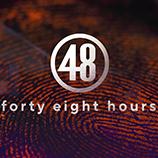203-661-6000
170 Mason Street, Greenwich, CT 06830
New York Anti-Eviction Law Offers Relief to Tenants But Not All Landlords

There are few aspects of life that have not been affected by COVID-19. Millions of Americans have lost their jobs, had their work hours cut, or were forced to quit their jobs due to COVID-19 related lockdowns. This has led to widespread financial hardship. To mitigate some of the effects of this financial uncertainty, the federal government has released funds in the form of stimulus checks to individuals and businesses. New York state has also extended the moratorium on tenant evictions. Although recent measures have provided financial relief to renters, many landlords are concerned about the effect anti-eviction laws will have on their own finances.
New York Bans Evictions Amid Continued COVID-19 Concerns
Approximately 330,000 individuals have lost their lives due to the COVID-19 virus as of January 2021. Millions more have felt the effects of the virus financially. In order to avoid struggling Americans from ending up on the streets, many states have issued moratoriums on evictions. This has provided many families with valuable time to get back on their feet financially; however, it has also caused considerable financial difficulties for many property owners and landlords.
Just recently, the New York Legislature passed one of the most thorough anti-eviction laws in the country. Governor Andrew M. Cuomo signed the COVID-19 Emergency Eviction and Foreclosure Prevention Act of 2020 into law on December 28, 2020. The legislation prevents landlords from evicting residential tenants until May 2021 if the tenants have experienced a COVID-19-related financial hardship. However, to qualify for protection under this law, tenants must provide a written explanation of their hardship. Landlords are permitted to evict tenants who do not submit a hardship declaration or those who create safety or health hazards for other tenants. The act also prohibits foreclosure proceedings until May 1 and extends the Senior Citizens' Homeowner Exemption and Disabled Homeowner Exemption.
Some Landlords Are Able to File Hardship Declarations But Many May Not Qualify
Landlords who own fewer than 10 residential homes may submit a hardship declaration explaining their financial hardship to their mortgage lender or other foreclosing parties to protect themselves from foreclosure. Although the new legislation may make it harder for banks to foreclose on struggling landlords who own just a few properties, it does not address the difficulties faced by landlords with many properties. Many landlords feel as if anti-eviction legislation is biased toward tenants and against them. They argue that there are not adequate measures to distinguish between tenants who cannot pay because they are experiencing a financial crisis and those who simply choose not to pay.
Contact a Metro New York Real Estate Lawyer
During uncertain times like these, having a strong legal advocate on your side is crucial. For help with lease disputes, home sales and purchases, commercial real estate development, and much more, speak with an experienced Metro New York real estate attorney from Ivey, Barnum & O’Mara, LLC. Schedule a free, confidential consultation by calling our office at 203-661-6000 today.
Sources:
https://www.nydailynews.com/news/politics/new-york-elections-government/ny-eviction-moratorium-covid-landlords-tenants-foreclosure-20210111-ubph4grdcjd65actdujugfoydu-story.html
https://www.nytimes.com/2021/01/09/realestate/landlords-tenants-cant-pay-rent.html
https://www.governor.ny.gov/news/governor-cuomo-signs-covid-19-emergency-eviction-and-foreclosure-prevention-act-2020













